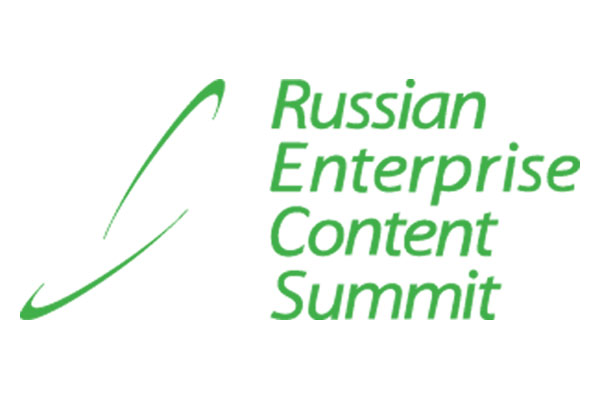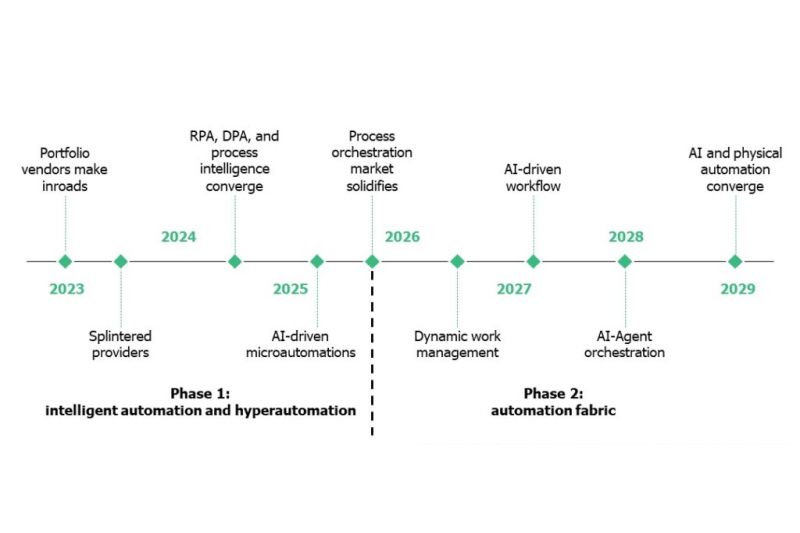by Helen Monakhova
The Russian market of management consulting services has undoubtedly progressed a lot since it arose in the early 90s. However, this market is still far from being conclusively formed. In the opinion of the majority of experts the “fermentation” phase still persists today. There is no as yet clear classification of activities in this field, and professionals have not appeared who would be unanimously acknowledged by their colleagues. Perhaps there even can be no reliable typology under these ever changing conditions. Nevertheless, it would not be out of place to explore the nature of today’s management environment, consulting services, and new trends of management market.
Conventional Classification
This preamble seeks only to underline the relative character of any classification in today’s situation in Russia. The Russia’s consultants have already tried to class themselves into categories; a number of books have been published on this subject. It is clear that criteria in this case may be different as well as authors’ points of view may vary.
My conclusions are based on my own observations of the management consulting services market and also on information gained from my talks with heads of several large consulting institutions. They are: Arkady Prigozhin, president of Association of Management and Organization Development Consultants (AMODC), Alexander Posadsky, general manager of Association of Economics and Management Consultants (AEMC), and Andrey Ivlev, a founder of Moscow Network of Organization Development Specialists (Russia’s section of international Organization Development Network, ODN).
The most widespread classification coming to us from the West distinguishes three groups of management consultants: expert consultants, process consultants and training consultants.
In all cases management consultants stand out of a great many other specialists (by some estimates, more than 300 consulting companies are officially registered in Russia now) because they always consult the top manager of the client organization. The subject of consulting are financial and social problems as well as human resources.
Expert consultants (such as PriceWaterhouse & Coopers, Ernst & Young, KPMG, Deloitte & Touche, and Arthur Andersen) answer the question “What to do?” and define strategic goals and general policy. As a rule, they are gurus in some area of activities - “leaders of the pack” or “mature and celebrated strategists” whose qualification by far surpasses that of the person being consulted. Their authority is unshakable: if the sports instructor trains someone to swim, then he himself should not drown in the swimming pool, as a minimum. Technology consultants, i.e. those who try to sell their knowledge in specific technological processes (be it steelmaking, packing, cow milking, etc.) also may be referred to this category. They are commonly competent specialists at scientific and research institutes (former and present), ministry employees, and also businessmen of new formation (persons like Dovgan’) who have become experienced in particular business during the last five - ten years.
Process consultants answer the question “How to do?” and help comprehend the preset goals and organize their achievement. Their actions are more akin to the actions of tutors or psychologists, or, in sports terms, “playing coaches”. Process consultants form the overwhelming majority of all management consultants present in the market today. They set things going at the enterprise (they put right the accounting and financial management, develop and implement the marketing policy, etc.) depending on the area of the their knowledge.
There is evidently no need to explain the principle of training consultants’ work. This role is usually played by assistant professors and professors of higher schools specializing in management or institutions dealing with additional personnel training (extension courses for improving one’s qualification). The typical representatives of this category are specialists of the School of Management Consultants of Academy of National Economy at the RF Government and Moscow company “bIG” which intensively conducts seminars and workshops in management and publishes its recommendations in magazines and books.
The term “generalists” has been heard recently among the consultants more and more often. In my view, this is an answer to the market needs in the consultants of wide profile, who not only set goals and coordinate the goals of different subdivisions of the enterprise but also attain them, that is they cover the expert and process consulting. It is assumed that the methods they use are fairly universal and can be applied in various spheres. I dare say that given the attractiveness of this status, it is rather difficult to find specialists who are really worth it.
There is one more category of consultants - conceptualists (in their abilities they are mostly close to “generalists”). Though conceptualists are few in number, they successfully manage problems of high conceptual severity. The Moscow-based analytical center “Kontsept” and scientific-consulting corporation “MetaSintez” can be referred to this category.
There also exists the multitude of small consulting firms specializing in some particular but important issue. As an example, I can cite the Center of legal support and conflict resolution named “Solomonovo reshenie” (Solomon’s decision). Its specialists present themselves as experts in social mechanics of the Russian contradictory society. They render assistance to companies’ executives who have run into, say, the situation of non-compliance with contract obligations.
System analysts (also referred to the clan of management consultants) are engaged in competent coordination of strategic planning and problems of organization development, operational management and derivation of management information system. They are capable of translating from the language of business procedures into the language of transactions. Large enterprises generally have such specialists on the staff or sometimes invite them from the reengineering companies.
Management Giants
Common interests (as well as common misfortunes) unite people. The idea of creation of professional unions and special interests clubs of all kinds is quite popular worldwide. In the Russian management consulting market it has been materialized in the form of associations and club parties. Three largest unions of that kind should be mentioned apart.
Two associations (AMODC and AEMC) have emerged approximately at the same time but the principles of their formation and the pursued goals, in my opinion, differ drastically. AEMC positioned itself originally as an elite institution which can fill large orders in consulting (at the governmental level or by foreign grants). One of its main goals is the creation of the certification center issuing licenses for consulting activities to companies working in Russia.
The other association, AMODC, is also interested in the creation of such a certification center. For the most part, however, it tackles a different problem, that is educational-methodical one. Its workshops, not without reason, are first of all sharing of experience, a joint attempt to find new promising management techniques, and develop scientific lines.
You may learn more about Moscow Network of Organization Development Consultants, its goals and activities at www.odn.ru.
Innovations in Consulting Methodologies
“The science of management is moving from larger definiteness to greater abstraction,” -states Arkady Prigozhin, professor at the Academy of National Economy. The majority of management consultants striving to say their own word in science agree with this statement. However, they devise quite different methodologies.
Prof. Prigozhin reasons that the potentialities of algorithmic approach have been exhausted since they are good only for structured issues. Nowadays, when non-structured problems prevail, the qualitative methods are put in the forefront and are gaining in importance. They have influenced, in particular, a leap from well-known and habitual long-term planning to strategic planning and management. Strict mathematical methods also play an important yet limited role in these processes. To overcome these limits consultants attempt to look at the management issues differently. Hence a term “vision” (the image of desired future) has appeared, and it is very popular now in the West. It is impossible to define this image strictly, it may only be done at the quality level. besides, as the goal becomes nearer, the notion of this image changes, which means that the process is totally dynamic. Therefore, consultants now pay attention to new trends in the science known in the West as Organization Development. This science treats organization as a whole unit and views its development through the prism of its personnel development.
What else is characteristic of qualitative methods? Primary emphasis is placed on the set of goals that are studied from different points of view: one of the owner, one of the whole company, and one of its subdivisions. The subjects’ points of view differ dramatically and, therefore, come into conflict with one another. The main task of consultants is to manage the acuteness of these conflicts by coordinating the goals of different groups. Prigozhin’s school has its own consulting ideology which is embodied in technology, techniques, and procedures.
Although the qualitative methods are often subjected to criticism by Russian managers (“if it is not calculable, it is nonsense”), specialists in Association of Management and Organization Development Consultants actively use and advance them. For instance, at the latest workshop on the 10th of December, 1998 the management technique based on (low level signals( methods were discussed, that is the mechanisms of soft dynamic correction of organization development.
Andrey Ivlev of the APS-Consulting company and his colleagues from Moscow Network of Organization Development Specialists put more emphasis on another management method - mythodesign, or artistic type of management. (The abandonment of tough natural-scientific approach is accompanied with active humanization of society. Many processes undergo changes, and so are the ways we think, - says Ivlev, a professional psychologist. -As a consequence, the theory of self-organizing society is becoming more and more popular. One of its methods is artistic type of management, which implies the use of metaphors and tales; it is nearest the psychology. In this case aesthetic satisfaction, sense of harmony, and feeling of agreement with the surroundings become the criteria of correctness of management solution.(
At present, this scientific line is progressing, e. g. within the framework of a regular workshop (Management Mythodesign(, and educational courses for managers and consultants are being elaborated.
Helen Monakhova, Deputy Editor-in-Chief of PC Week/RE. She can be reached at monah@pcweek.ru.






























